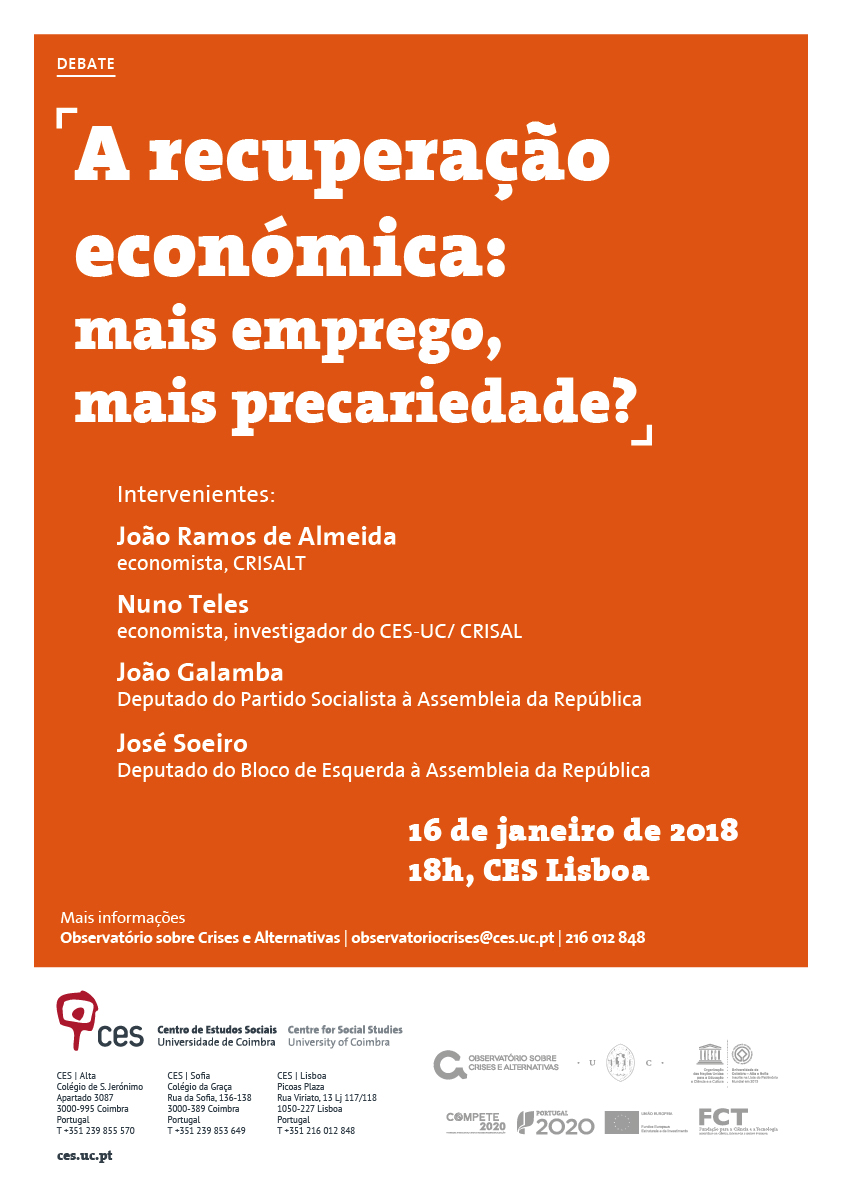Debate
A recuperação económica: mais emprego, mais precariedade?
16 de janeiro de 2018, 18h00
CES | Lisboa
Enquadramento
Este debate realiza-se em torno dos últimos Barómetro das Crises sobre a recuperação económica, as mudanças estruturais económicas e a qualidade do novo emprego criado. O novo Barómetro do Observatório sobre Crises e Alternativas "Retoma Económica: o lastro chamado precariedade" confirma a manutenção das tendências já antes detetadas: a estrutura do emprego por conta de outrem, por tipo de contrato, não melhorou; o peso dos contratos permanentes nos novos contratos continua diminuto, apesar de em 2017 ter registado uma ligeira melhoria; a disparidade entre o número de contratos assinados e vigentes continua a ser reveladora da volatilidade dos contratos de trabalho; o predomínio da precariedade é acompanhado por uma degradação da remuneração média dos novos contratos permanentes, ao mesmo tempo que se verifica uma subida da remuneração média dos contratos não permanentes, por efeito da atualização do Salário Mínimo Nacional – crescentemente a remuneração de referência para a generalidade dos novos contratos de trabalho. Esta situação articula-se com o Barómetro "A dupla face da recuperação: subida do emprego, estagnação da produtividade", publicado em novembro, onde se assinala o facto de a retoma económica estar a ocorrer sobretudo em atividades de serviços ligadas ao turismo e outras onde o potencial de crescimento da produtividade é baixo.
Face a este cenário, necessitamos de encontrar respostas políticas para que a recuperação se traduza numa estrutura económica mais diversificada, criadora de emprego mais bem pago e com direitos. Esse é repto que orienta este debate.
Intervenientes
João Ramos de Almeida, economista, CRISALT
Nuno Teles, economista, investigador do CES-UC/ CRISALT
João Galamba, Deputado do Partido Socialista à Assembleia da República
José Soeiro, Deputado do Bloco de Esquerda à Assembleia da República
Mais informações
Observatório sobre Crises e Alternativas | observatoriocrises@ces.uc.pt | 216 012 848


